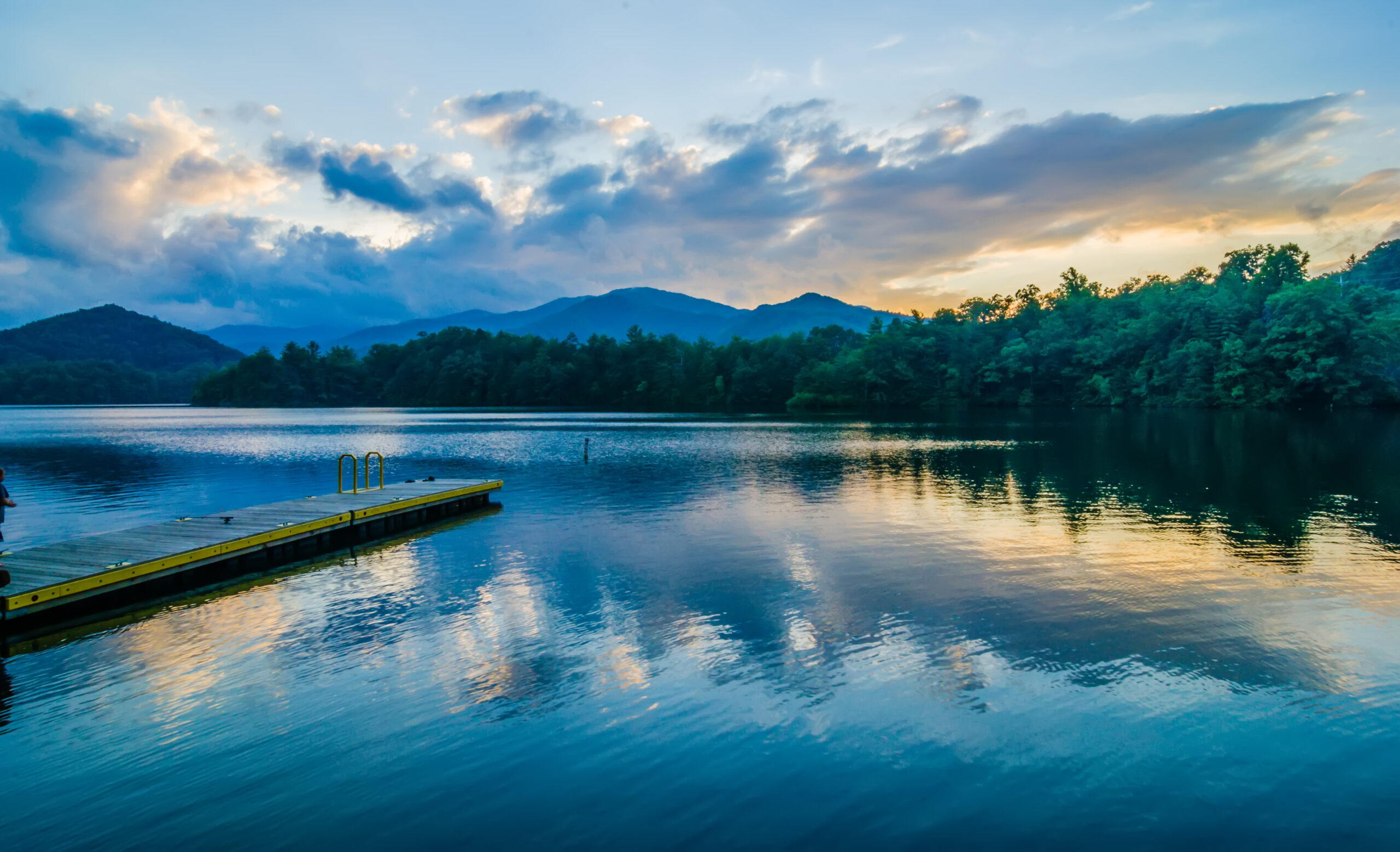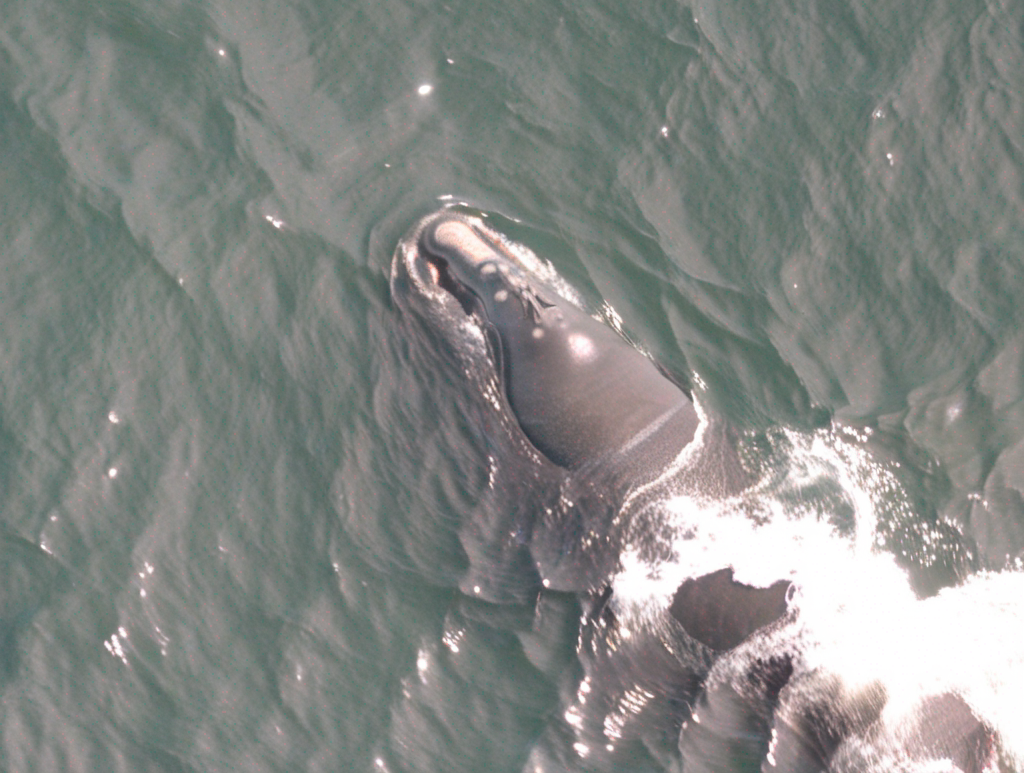BY MARGARET WACK
North Carolina Sea Grant, the North Carolina Water Resources Research Institute, and the Urban Water Consortium have selected new “Mountains to Sea” research fellows who are focusing on coastal and freshwater resources across the state. Their projects address the impacts of coastal flooding and climate change, microplastics and wastewater treatment, perceptions of salt marshes, and more.
The new fellows are graduate students at East Carolina University, UNC Chapel Hill, and UNC Charlotte.

Autumn Robinson, East Carolina University
Autumn is a PhD student in East Carolina University’s Interdisciplinary Doctoral Program in Biology, Biomedicine, and Chemistry. Her research advisor is Erin Field. North Carolina Sea Grant and the North Carolina Water Resources Research Institute are supporting Autumn’s work.
Project
Identification of Polyphosphate Accumulating Organisms in an NC Wastewater Treatment Plant and Factors that Affect Their Performance in Enhanced Biological Phosphorus Removal
Autumn’s project focuses on wastewater treatment plants’ use of bacteria as part of the treatment process. Wastewater treatment plants work to remove phosphorus from wastewater because of its harmful effects on the environment — but while phosphorus-removing bacteria are cheaper and more sustainable than other methods, the efficacy of this biological process is influenced by many factors.
By analyzing DNA and RNA samples from the bacteria, Autumn hopes to identify which bacteria are phosphorus-removing bacteria, what environmental conditions cause them to fail and succeed at removing phosphorus, and how their activity changes over time. This research will help make it possible to find ways to prevent instances of failure in the future, ultimately reducing environmental harm and improving wastewater treatment processes.
Autumn also hopes that stabilizing this method of phosphorus removal will encourage more wastewater treatment plants to adopt it, helping to ease the financial burden of wastewater treatment on communities.
What excites you about your research?
“What excites me about my research is that I am working to help solve real world issues impacting environments and communities. In addition, I am excited that I get to work in collaboration with many different people. I strongly feel that the best way to solve tough problems is through collaboration and I am really happy to be doing research that allows me to do that.”

Mary-Margaret McKinney, East Carolina University
Mary-Margaret is a PhD student in the Integrated Coastal Studies program at East Carolina University and Director of Coastal Restoration for Native Shorelines. Her PhD advisor is Rachel Gittman, and Cynthia Grace-McCaskey is her mentor. North Carolina Sea Grant and the North Carolina Water Resources Research Institute are supporting Mary-Margaret’s work.
Project
Assessing Perceptions of Salt Marsh in the Residential Landscape in Central Coastal North Carolina
North Carolina could lose as much as 60% of its salt marshes by 2100. This loss of salt marsh, coupled with sea level rise, is projected to result in substantial increases in the number of days of flooding each year simply due to higher tides. Salt marshes provide individuals and communities with a wide variety of benefits, not the least of which are erosion prevention and flood control.
Mary-Margaret’s research seeks to understand how people think and feel about salt marshes as lawns so that outreach and educational materials can be designed that will successfully encourage landowners to adopt environmentally friendly landscaping practices.
Understanding how salt marsh is perceived with coastal residents can make it easier to address any concerns landowners may have and to recommend practices that are likely to be positively received.
What excites you about your research?
“I have always been fascinated with how people think and make decisions and what motivates those decisions. I believe that most people are interested in keeping our coast as healthy as possible and would choose environmentally friendly landscaping options if they understand the impact of their choices and can do so in a way that does not cause detriment to themselves or their families. I am excited to understand more about how people view salt marsh in lawns so that we can tailor messaging that will encourage more people to retain or restore fringing marsh on their properties.”

John (Jack) Baer, University of North Carolina at Chapel Hill
Jack is a Graduate Research Assistant at the University of North Carolina at Chapel Hill. His advisor is Antonia Sebastian. North Carolina Sea Grant and the North Carolina Water Resources Research Institute are supporting Jack’s work.
Project
What are the Odds? Probabilistic Flood Hazard Assessment for New Bern, North Carolina
Past flooding disasters have devastated different parts of North Carolina, and future floods are only projected to grow in severity. Jack’s research seeks to improve upon the modeling techniques used to identify where — and how often — flooding is expected to occur, in order to better understand the flood hazard facing New Bern.
Traditionally, flood hazard models have used simple representations of rainfall, which can sometimes miss important details of how storms behave. Traditional flood hazard models also typically simulate only one flood extent for a given storm.
Jack’s research aims to address the limitations of traditional flood hazard models by representing storms more realistically and creating multiple plausible models in order to understand the range of floods that a storm might produce. The goal of this research is to better characterize the possible flood hazards that New Bern’s residents and local government must prepare for.
What excites you about your research?
“I absolutely love modeling—it can be extremely difficult at times, but it’s always rewarding when you finally build a solid, running model. I’m also excited by the fact that this research gives me a chance to have a positive impact on the lives of other North Carolinians.”

Bevin Hardy, University of North Carolina at Chapel Hill
Bevin is pursuing a PhD in Anthropology at the University of North Carolina at Chapel Hill. North Carolina Sea Grant and the North Carolina Water Resources Research Institute are supporting Bevin’s work.
Project
Understanding Perceptions, Impacts, and Responses Related to Climate Change in Ocracoke, North Carolina
Approaching the impacts of climate change from an anthropological lens, Bevin’s research seeks to understand community perceptions of and responses to the impacts of a changing climate in the small barrier island community of Ocracoke, located in North Carolina’s Outer Banks. Her research investigates residents’ current and imagined future responses to climate and non-climate stressors in Ocracoke, and explores the role of social resilience, social networks, and place attachment in these responses.
Cultural context and community voices are often missing from decision making and research conducted by climatologists, policy makers, land managers. Bevin’s research seeks to bridge this gap by testing a framework that could better engage communities in research and capture their perspectives to help produce meaningful and effective solutions to combat the impacts of climate change. The primary goal of her research is to highlight the importance of cultural context and community engagement in coastal and climate change research.
What excites you about your research?
“The most exciting part of my research is being able to learn from community members and immerse myself in a new culture. Communities hold such valuable knowledge that is often overlooked and I am interested in finding ways to highlight this knowledge through community engagement. I truly believe this can bring about meaningful solutions and strategies for dealing with climate change impacts.”

Chideraa Ndubuisi, University of North Carolina at Charlotte
Chideraa is a physician currently pursuing a Masters in Epidemiology and a PhD in Infrastructure and Environmental Systems at the University of North Carolina, Charlotte. His research advisor is Olya Keen. His project is supported by the Urban Water Consortium.
Project
Assessment and Mitigation of Microplastic Pollution in Treated Wastewater and Biosolids: A Focus on Primary and Secondary Solids
Microplastic pollution impacts plants, animals, and even the food and water people consume. Chideraa’s research focuses on microplastics in treated wastewater, aiming to understand their quantity, behavior, and impact. By analyzing samples from wastewater treatment plants, Chideraa hopes to identify and quantify microplastics present in the wastewater and biosolids, and to come up with pollution mitigation strategies to reduce microplastic pollution at wastewater treatment plants.
Blending environmental science with public health, the project will provide insights into how environmental pollutants like microplastics influence human health through water sources.
What excites you about your research?
“What really excites me about my research is the chance to dig into the mystery of microplastics—those tiny, hidden pollutants in our water. It feels like a treasure hunt where what I find could help us protect our environment and health. Every step, from collecting samples to analyzing them, is an adventure that brings us closer to better ways of keeping these plastics out of nature. Sharing my discoveries and raising awareness adds to the thrill. It’s all about making a big difference by understanding and tackling something as small as microplastics.”
lead photo: sunset at Lake Santeetlah in the Great Smoky Mountains, North Carolina (adobestock).



